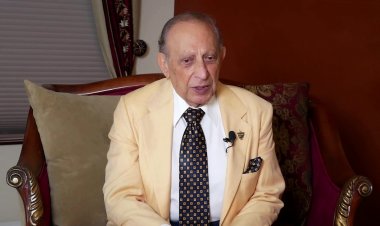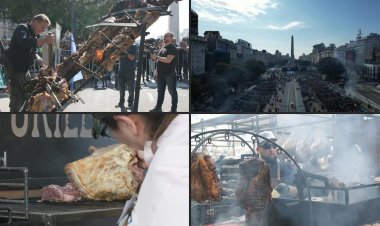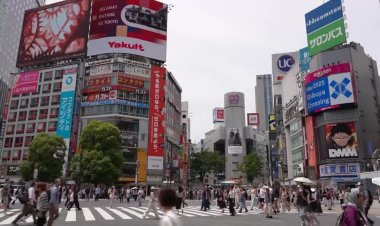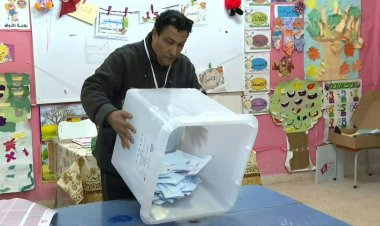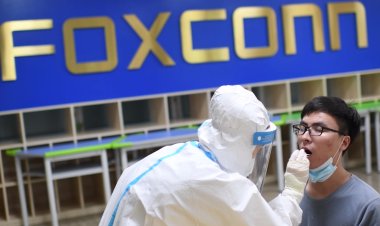Controversy Surrounds Kariye Mosque Reopening
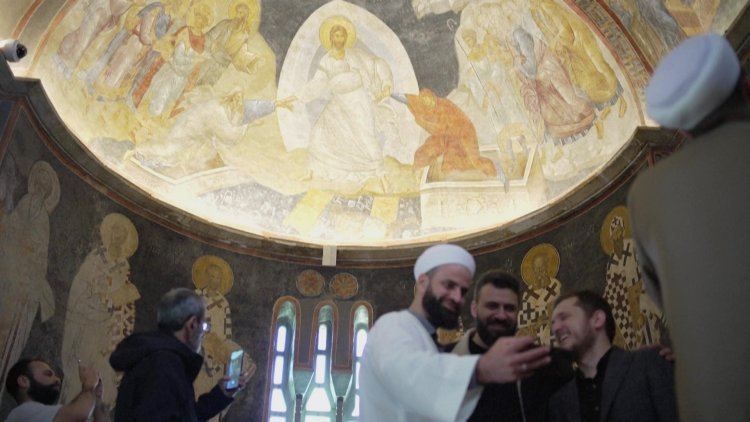
Turkey reopened a mosque converted from an ancient Orthodox church in Istanbul for Muslim worship, four years after the president ordered its transformation.
The Kariye Mosque was formerly a Byzantine church, then a mosque and then a museum.
President Recep Tayyip Erdogan ordered the building to be reconverted into a Muslim place of worship in 2020.
His order followed a similarly controversial ruling on the UNESCO-protected Hagia Sophia -- a cathedral in Istanbul that was converted into a mosque and then a museum, before becoming a mosque again.
The changes were seen as part of Erdogan's efforts to galvanize his more conservative and nationalist supporters.
But they have also added to tensions with prelates in both the Orthodox and Catholic churches.
Erdogan declared Kariye Mosque reopened for worship remotely during a ceremony at the presidential palace in the capital, Ankara.
Picture from the mosque showed one worshiper waving a Turkish flag before the congregation who performed their prayers on a brick-red color carpet.
The decision in 2020 to convert the building drew an angry response from neighboring Greece, which called the move "yet another provocation against religious persons everywhere".
The Holy Saviour in Chora was a Byzantine church decorated with 14th-century frescoes of the Last Judgment that are still treasured by Christians.
The church was converted into Kariye Mosque half a century after the 1453 conquest of Constantinople by the Ottoman Turks.
It became the Kariye Museum after World War II, when Turkey sought to create a more secular republic from the ashes of the Ottoman Empire.
A group of art historians from the United States helped restore the original church's mosaics and they were put on public display in 1958.





